In his famous book Crossing the Threshold of Hope, John Paul II wrote: “First of all I remember the primary school of Wadowice, where in my class one quarter of the pupils at least were of Jewish origin. Now I have to mention my friendship in my schoolboy days with one of them, Jerzy Kluger. This friendship has lasted up to the present day.” Thus the world learned about the friendship between the Pope and a Polish Jew. On the last day of 2011, six years after John Paul II’s death, his Jewish friend also passed away in Rome at the age of 90.
Two days later, Jerzy Kluger was buried in the Jewish sector of Prima Porta Cemetery. Seven days after the burial, the solemn commemoration of the deceased was held, presided over by a rabbi of Rome, in the presence of Kluger’s widow Irene, his daughter Linda (Jerzy Kluger’s second daughter died last year), Mordechay Lewy, the Israeli ambassador to the Holy See, Hanna Suchocka, the Polish ambassador to the Holy See, and Wojciech Ponikiewshi, the Polish ambassador to Italy. The lines of the Kaddish, the Jewish prayer for the dead, echoed in the cemetery.
At the end of the ceremony, I caught up with Irene Kluger to remember her husband, a Polish patriot and John Paul II’s friend.
When and under what circumstances did you meet Jerzy Kluger?
Irene Kluger: I met my husband during the war in Egypt, namely after the battle of El Alamein in 1942.
I was an officer in the British Army and my husband an officer in General Anders’ Polish Army, which fought with the Allies.
I would like to say how my husband ended up in Egypt; at the outbreak of World War II, Jerzy left Wadowice and went to the East with his father to join the Polish Army. In 1940 they were jailed by the Soviets and sent to a labor camp in Siberia. When the Soviets allied with the US against Germany, many Polish prisoners in the Soviet Union could join General Anders’ army. This army reached Egypt through Uzbekistan and the Middle East.
I was stationed in Alexandria and Cairo. We met because Jerzy was a tennis enthusiast like me. At the time we could play tennis at the officers’ club and it was there that we met.
So you met, fell in love and got married…
Kluger: Yes, we married in Cairo. Unfortunately the war was going on and Jerzy had to leave with the Polish Army and fight all through the Italian campaign, the battle of Monte Cassino included. As for me, I returned to England, where my husband reached me at the end of the war. He entered Nottingham University, where he graduated in engineering.
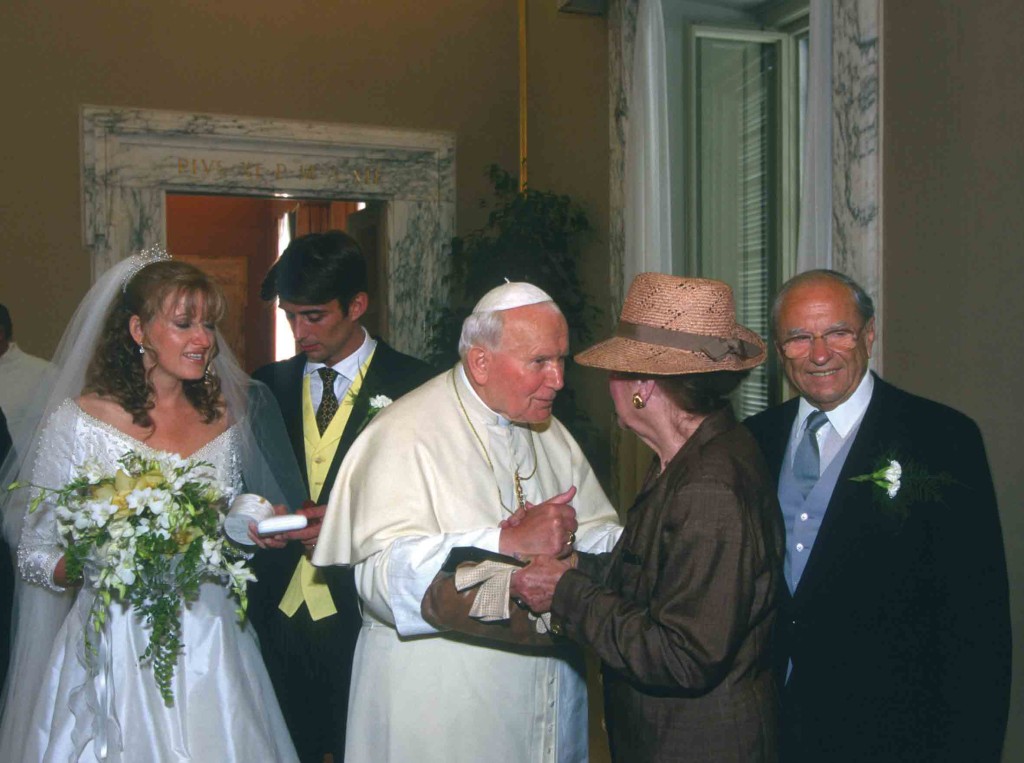
at Castel Gandolfo, John Paul II greets Halina Krolikiewicz-Kwiatkowska, his and Jerzy Kluger’s classmate, on the occasion of the wedding of Stefania, Kluger’s niece, on September 11, 1997.
Why did you, an Irishwoman, and your husband, a Pole, decide to settle in Italy?
Kluger: First of all, my husband began to do business in Italy. We also came to Italy on holiday: we visited San Remo and Positano, among other places, and fell in love with this country. Also, we liked the climate: my younger daughter, who suffered from asthma, felt better in Italy than in England; as for Jerzy, he could play tennis all year (he was crazy about tennis). So we settled here.
What was it like to live in Italy?
Kluger: When we arrived here in the 1950s Italy looked like paradise. In addition, we were young and full of enthusiasm.
As a Catholic, you had your daughters baptized and gave them a Catholic education. Does this mean that your husband was tolerant in religious matters?
Kluger: My husband, like his father, was a Jewish believer, but a very tolerant one; Jerzy’s family didn’t live in the ghetto, but had lots of friends among Polish Catholics. Also, one becomes Jewish if one has a Jewish mother; so my daughters, having been born of a Catholic mother, were not Jewish and could be baptized.
Cardinal Dziwisz referred to Jerzy Kluger as “a great Polish patriot.” What did your husband tell you about Poland and how did he feel about his country?
Kluger: It’s true, my husband was a great Polish patriot: all I heard him talk about in 60 years of married life was Poland. Needless to say, he spoke about the Poland of his childhood and youth days, but also of Karol Wojtyla. He didn’t show great interest in the political situation of present-day Poland, but preferred to read the classics of Polish literature. Every year in May he took part in the commemoration of the Battle of Monte Cassino.
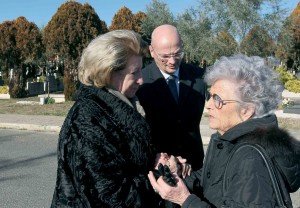
Wojciech Ponikiewski, Polish ambassador to the Italian Republic, and Hanna Suchocka, Polish ambassador to the Holy See, offer Irene Kluger their condolences after the commemoration ceremony for Jerzy Kluger at the Prima Porta Jewish cemetery in Rome on January 8, 2012.
Jerzy Kluger fought in the Battle of Monte Cassino as a soldier of General Anders’ Polish Army. This event is a very important historical moment to the Polish people…
Kluger: The memory of this event was always alive in Jerzy’s mind. He often told me about it. We must remember that for his participation in this battle my husband was awarded the great Polish decoration, “Polonia restituta.” Also, not long ago, Polish authorities promoted him from captain to major.
When did you learn about the friendship between the two boys from Wadowice, Jerzy Kluger and Karol Wojtyla?
Kluger: During the Second Vatican Council my husband read in the papers that the name of the Krakow archbishop was Karol Wojtyla and he soon thought about his friend from Wadowice. He went to a Polish institute to inquire about him. Wojtyla was not there, so my husband left his telephone number. Shortly afterwards, Wojtyla called our office, saying: “Is this Jurek Kluger speaking?” When Jerzy said “Yes,” he asked him to reach him soon. So after 25 years the two friends from Wadowice met again. From that moment they never lost touch. When Cardinal Wojtyla was in Krakow, they either wrote or telephoned each other; they met when he came to Rome.
What changed when Cardinal Wojtyla was elected Pope?
Kluger: My husband was at the dentist’s when he heard the news of his friend’s election on the radio. He came home very excited; I was excited too. Those were incredible moments for us. The day after the opening Mass of John Paul II’s pontificate there was an audience for Polish people in the Paul VI Audience Hall, during which the Pope and my husband embraced. From that moment, Jurek often met the Holy Father. Every now and then all our family had lunch or dinner with the Pope in the Vatican or at Castel Gandolfo. Our meetings were at once simple — we saw him as one of our family — and extraordinary. Karol Wojtyla was in fact someone special whatever he did, as my husband always told me. That John Paul II loved us is proved by the fact that he chose to baptize our granddaughter, give her her First Communion, and marry her; in 2000 he also baptized my great-granddaughter Chiara!
There was talk of a role played by your husband in the preparation of John Paul II’s visit to the Synagogue in 1986 and in the establishing of diplomatic relations between Israel and the Holy See in 1993. What can you tell us about it?
Kluger: As for the Pope’s visit to the Synagogue, my husband was not involved in its preparation. Obviously, he knew Rabbi Toaf, but did not frequent the Synagogue of Rome because Roman Jews are Sephardic while he was an Ashkenazi. On the other hand, he told me that Karol Wojtyla had entered a synagogue as early as 1936. Wilhelm Kluger, my husband’s father, had organized a famous tenor’s concert in the local synagogue and invited his son’s young friend and his father. Jurek did a lot for Israel and the Holy See to establish diplomatic relations. He could do this because he was familiar with influential Israeli politicians and because he could treat such questions with the Pope directly.
You wanted your husband to be buried according to the Jewish rite. What was his will?
Kluger: Actually, my husband wanted to be cremated and taken to the Jewish cemetery of London, where his father is buried. Unfortunately, Jewish law does not allow cremation and so I thought of having him buried amongst other Jews in Rome. I didn’t know anything about the organization of a Jewish burial ceremony: the people at the Jewish rest home where my husband died saw to everything. I must also thank all the ambassadors who came to the commemorative ceremony which is held seven days after the funeral.

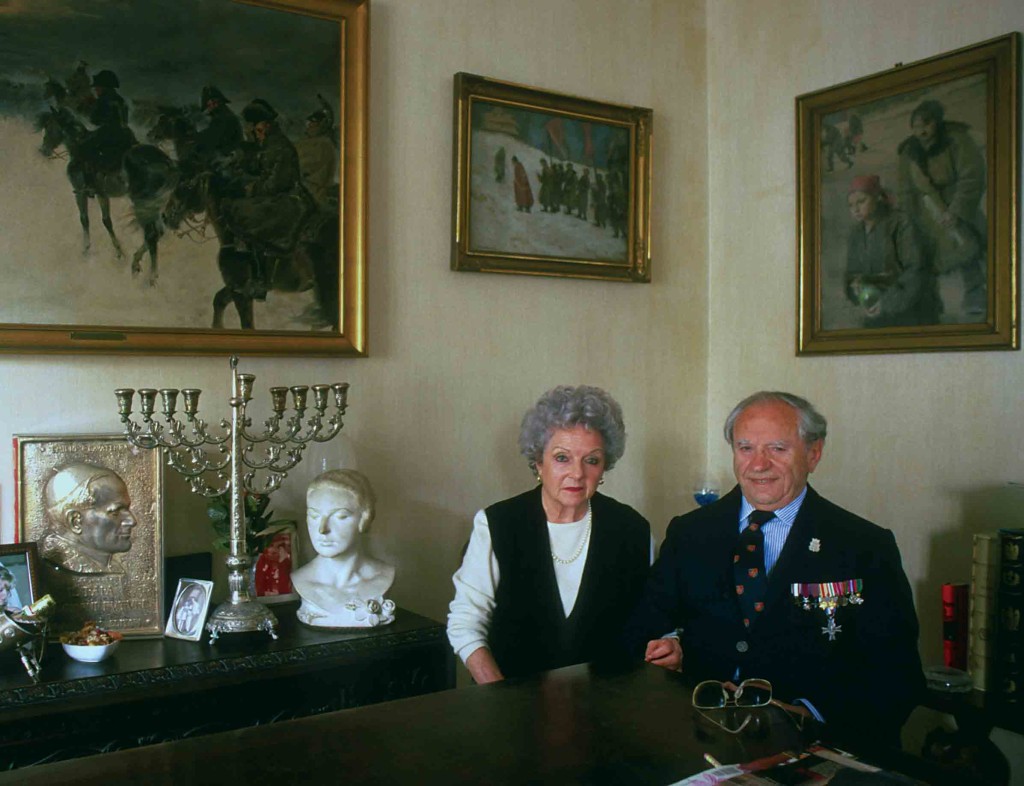

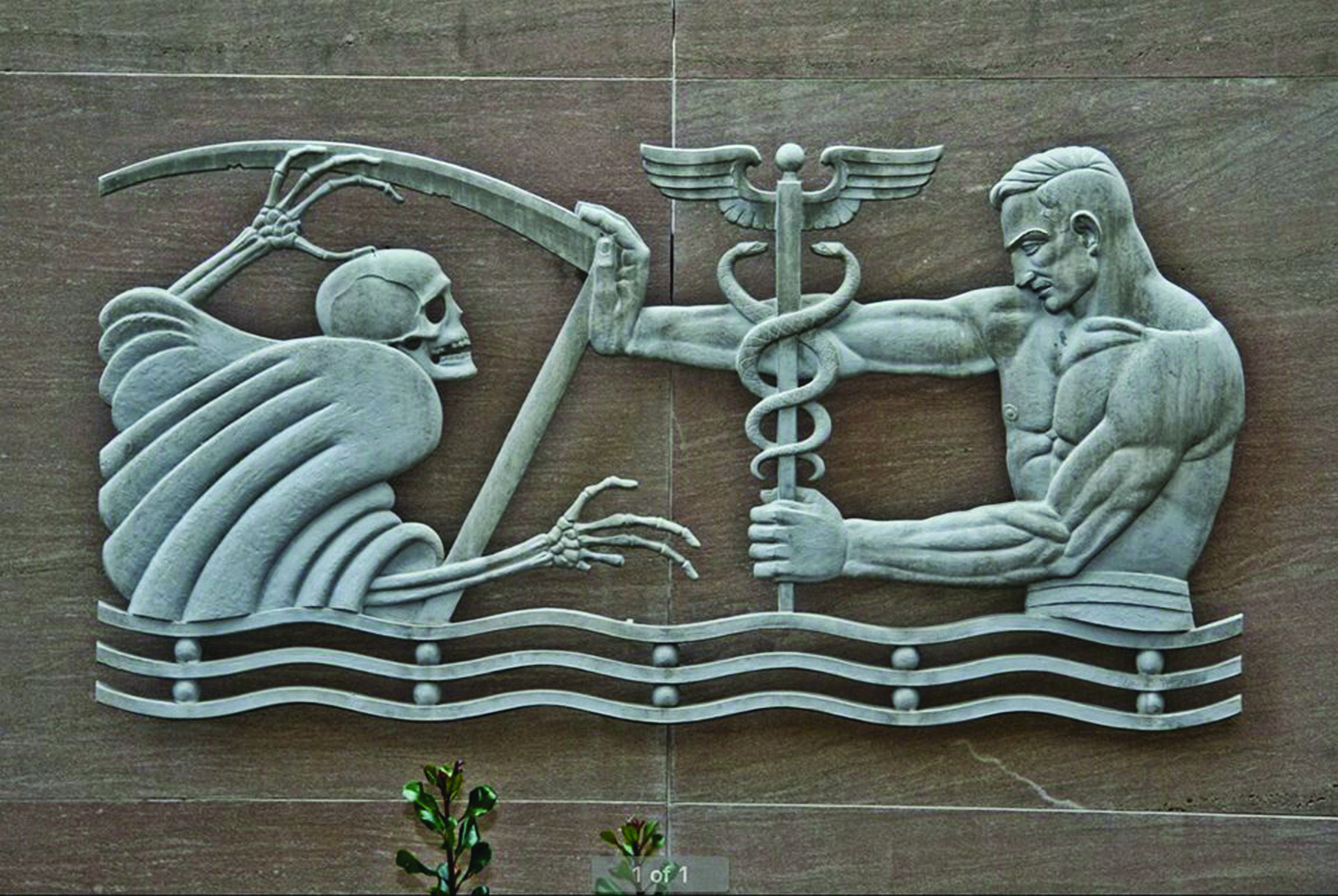


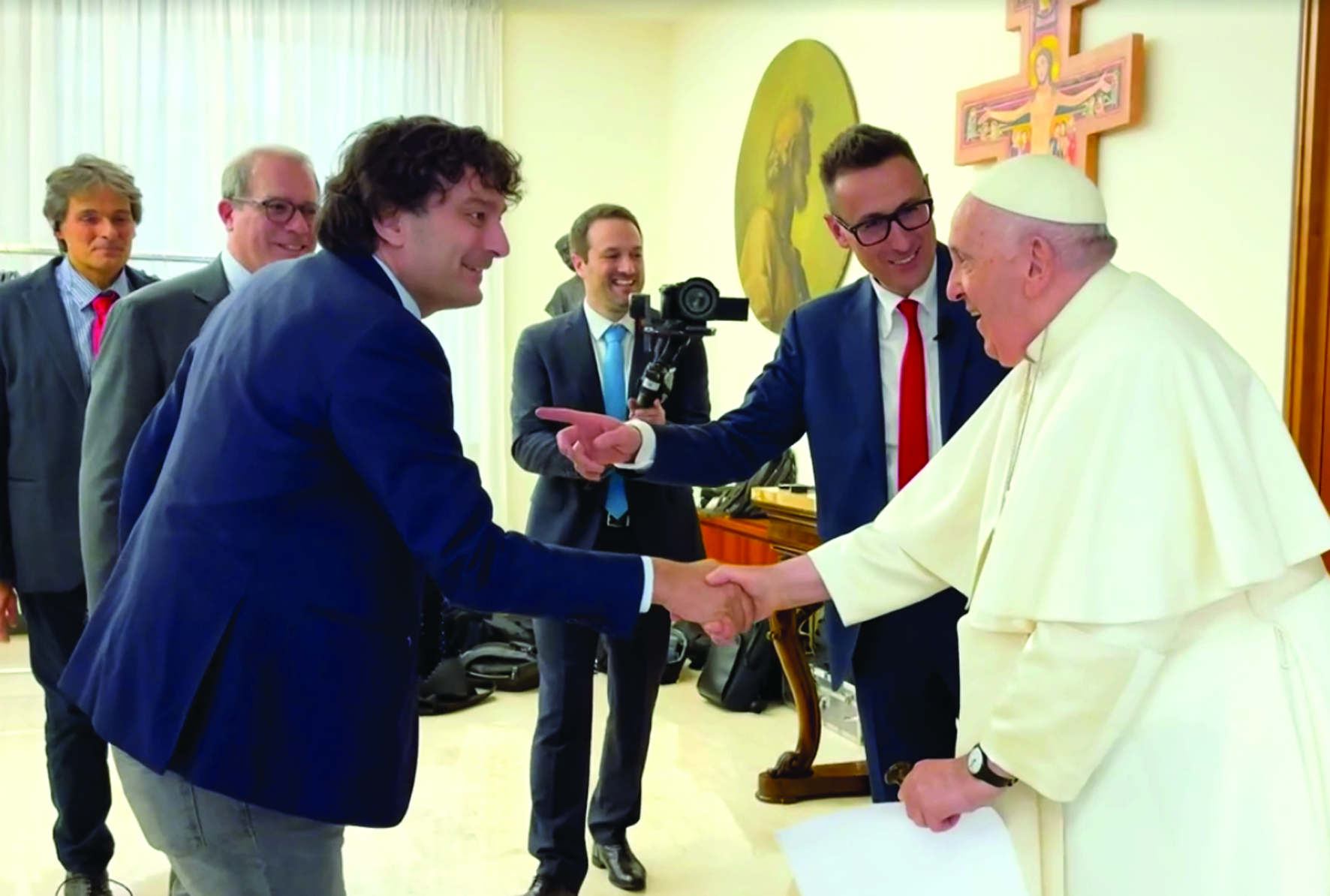
Facebook Comments